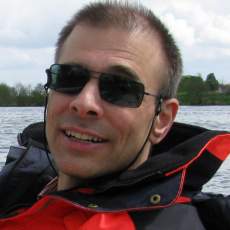Summary of the Project
The 4TCO0 Model-based Systems Engineering course is designed to teach students model-based design methodologies for high-tech systems. The curriculum covers the full development cycle of supervisory controllers, including plant component specification, simulation-based validation and visualization, PLC code generation, real-time control, and testing on an actual production system. Each year, approximately 180 third-year bachelor students participate in this elective course.
Since its introduction in 2015-2016, the course has undergone continuous improvements through student feedback and close collaboration with student assistants. Various enhancements have been made to optimize the learning experience, including the integration of online learning tools and automation systems. Educational resources and materials are accessible via the course website and Canvas.
Previous projects have contributed to the course’s development, including the 2017 Blended Learning Project, which established an interactive learning environment via Canvas, and the 2018 FeedbackFruits Group Member Evaluation Project, which introduced a peer assessment and self-assessment tool. With these continuous refinements, the course remains at the forefront of model-based systems engineering education.
Aim of the project
The primary objective of the 4TCO0 Model-based Systems Engineering course is to enhance student learning and engagement through the effective integration of digital tools and automated systems. The project focuses on five key areas of improvement:
- Version Control Support – Implementing version control software to facilitate collaboration, enable efficient tracking of student work, and support plagiarism detection.
- Digital Twins – Expanding the use of digital twin technology to improve simulation accuracy and enable independent testing before real-world implementation.
- Plagiarism Detection in Models – Introducing advanced plagiarism detection tools, such as JPlag, to maintain academic integrity in model-based assignments.
- Improvements in Course Structure – Refining the course layout to enhance structured learning, integrating quizzes, peer reviews, and interactive exercises for a more dynamic educational experience.
- Automated Testing and Grading – Developing an automated assessment system for project submissions to reduce workload on tutors and ensure timely feedback.
By implementing these improvements, the course aims to equip students with practical experience in digital system engineering while promoting efficiency, collaboration, and academic integrity. The innovations introduced in this project serve as a model for future engineering courses, fostering an adaptive and technology-driven learning environment.
Results and Learnings.
This project is still ongoing.
